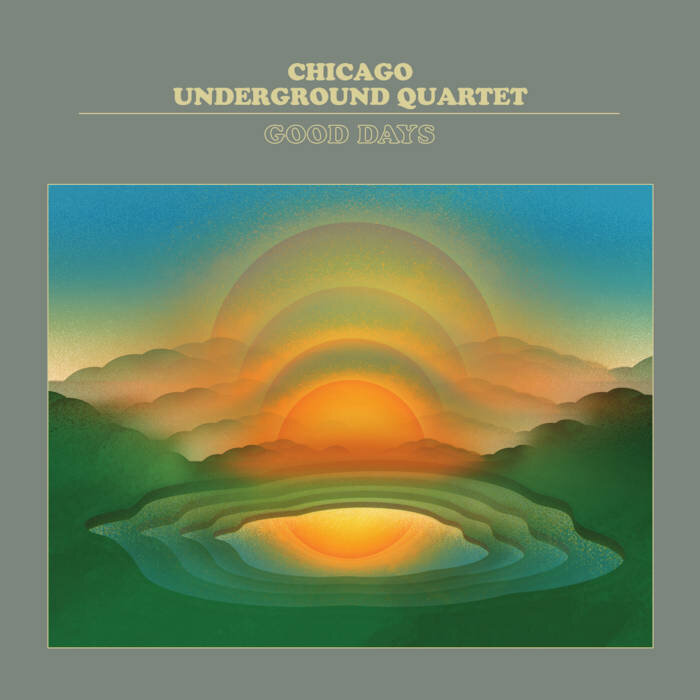Kawabata, Pinhas, Mujica, Pereira, Higashi
Alturas
SCORE: 9.3 out of 10
Five legends from three different nationalities come together for an improvised recording which faithfully captures their strengths as musicians and storytellers. Alturas is a highly detailed, instrumentally rich and beautiful opus.
Peru, Japan and France. Besides having the distinction of being countries that I’ll never get to visit, they also share the fact that they have been enormous musical epicenters, as their ripple effect has pretty much affected music all around the globe. Japan has always had this elegant way to take things to the extreme, creating their own brand of whichever style they decide to take from, be it noise, hardcore, black metal or pop; France too has had an elegant -yet disruptive- approach, giving us artists like Edgard Varèse, Brigitte Fontaine, but also spawning projects like Vomir or the whole LLN collective. Peru has been the unsung hero and precursor of genres like psychedelic folk-rock with seminal band El Polen, and even punk, with the dirty, guitar-driven music of Los Saicos. Now, these three cultures converge through five of their most representative artists coming together for an improvised recording that faithfully captures their strengths as musicians and aural storytellers.
For some background, we would need to go back to the 2017 edition of Integraciones, an experimental music festival that takes place in Lima: Iconic Japanese psychedelic band Acid Mothers Temple was set to share the bill with the painfully overlooked French guitarist and composer Richard Pinhas. Being their first visit to Peru, festival curator Luis Alvarado thought it would be a good idea for them to record an improvised session with local heroes, percussionist Manongo Mujica and El Polen frontperson and multi-instrumentalist, Juan Luis Pereira. The result was a perfect blend of Peruvian ethnic sounds mixed with modern instrumentation like electric guitar and synthesizer.
Alturas is a highly detailed, instrumentally rich and beautiful opus. The soundscapes achieved by the quintet have range and a wonderful sense of direction, but in no way it is a predictable one; they don’t hide the fact that this is an improvised session, but you wouldn’t bat an eye should you be told that these pieces were actually written and rehearsed, especially when considering the people involved. Such is the chemistry between these musicians, and it is something to be highlighted since it was the first time they played together. The result is psychedelia at its finest.
“Introducción” may be the simplest track on the album, but even then, it feels deeply layered. Pinhas and Kawabata create a beautiful wall of sound with their guitars for the rest of the the quintet to slowly come into scene; the drums slowly roll, cymbals crash and the synth patiently -and discretely- drones with an ethereal, almost unfelt, presence. It’s as if they’re slowly opening the door to their world, letting us catch glimpses of what we’ll find inside. This dynamic is carried through “Campanas”, but it is beautifully extended through nine gorgeous minutes of droning bliss. The subtle movements make “Campanas” feel like a tidal wave and the chiming bells act like sparkling reflections in the water. Without using any samples or field recordings, they create vivid images through the very textured use of their instruments.
“Andina” highlights the cultural diversity with Mujica’s rhythmic patterns which are set up against a distorted guitar playing a detuned andean scale. It sounds like the mutant version of Peruvian folk music and it just has so much personality even if the concept itself is not precisely new, since El Polen has already become an institution when it comes to mixing endemic flavors with the modern sounds of rock; however, Alturas further expands on the possibilities this combination can take. In “Charango”, the quintet goes into more stylistic intertwining, with Pereira’s strumming the song’s namesake instrument against a loose rhythm and looping guitars. It feels like the quintet is closing the album with a statement: more than simple fusion, this is about integration.
Each member was able to work with -and for- the pieces while bringing their own style but without making it the main focus of the songs, but even then, you can recognize each of their contributions because of how well they work together; there’s no spotlight stealing because because everyone is shining. Pinhas is at his most heavenly -even by his standards-; Kawabata and Higashi have never been more trance-inducing, which is not to be taken lightly coming from the founder and a member of a modern psychedelic powerhouse. Mujica and Pereira let their instruments speak to each other in a familiar language, but within this context, the words spoken have new meanings.
While Alturas could have benefited from more rhythm-oriented moments, it just has so much to offer when it comes to textures and much of the enhanced listening experience is owed to Ale Hop’s incredible mixing. She was able to put us in the center of this sacred ritual so we could appreciate every aural manifestation emanating from the hands of each of the people involved; this is truly to be cherished, as it seems that it was a once in a lifetime thing. This ephemeral nature is part of its majestic charm, though; it’s like being able to watch Halley’s comet passing through the night sky while the northern lights are reflecting on a glaciar. That reminds me… Iceland is yet another country I won’t visit.





